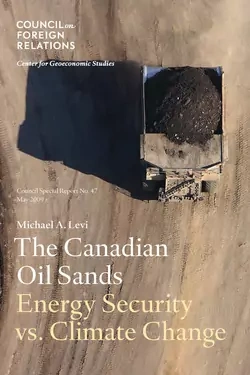
The Canadian Oil Sands
Energy Security vs. Climate Change

- Council Special Report
- Concise policy briefs that provide timely responses to developing crises or contributions to current policy dilemmas.
More on:
Overview
Rhetoric in Washington often focuses on areas where energy security and climate change, two increasingly prominent elements of U.S. domestic and foreign policy, align. Many important decisions, though, will require difficult tradeoffs between them. The Canadian oil sands—a massive but emissions-intensive source of oil—presents policymakers with precisely such a challenge. Unfettered production in the oil sands would increase greenhouse gas emissions but strengthen U.S. energy security with a supply of oil from a friendly and stable neighbor. Sharply curtailed oil sands operations would harm U.S. energy security but cut emissions.
This Council Special Report, written by Michael A. Levi, explores both the energy security and climate change implications of expanded oil sands production. It assesses current and future trends in the oil sands, including in the scale and cost of production and in the oil sands’ impact on world oil markets, and evaluates the potential impacts of a range of policy options. The report concludes that the oil sands are neither critical to U.S. energy security nor catastrophic for climate change.
It also argues, though, that their security benefits and climate costs cannot be ignored. Its recommendations focus on policies that would provide incentives to cut the emissions generated in producing each barrel of crude from the oil sands, but in a way that is careful to avoid directly discouraging increased production. The recommended measures balance energy security and climate change concerns rather than picking one as a clear priority over the other, providing insight both into how policymakers should approach the oil sands and into the broader challenge of addressing the intersection of energy security and climate change.
More on:
 Online Store
Online Store